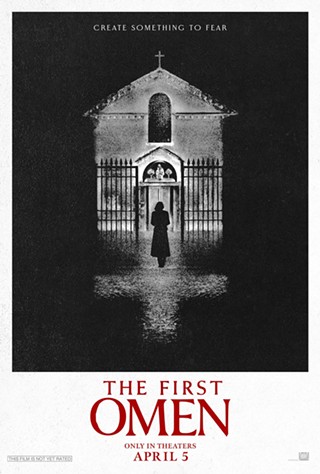PBS recently broadcast an illuminating documentary about the life and work of Woody Allen. Directed by Curb Your Enthusiasm producer Robert Weide, it provided rare insight into Allen's world.
He used to appear on talk shows all the time before becoming a full-time filmmaker, but these days—especially since the microscope fell on his personal life about 15 years ago—Woody doesn't grant as many interviews.
One thing that really stands out about the documentary is how he works. Like a lot of curmudgeons, Woody still uses a typewriter; in fact, it's the same typewriter he's used since 1952. And if he has to cut and paste part of a script to a new page, he does it the old-fashioned way. What is remarkable isn't that he still uses a 60-year typewriter, but rather that he's written 40 films in 40 years on it.
Allen's ceaseless pace has recently taken him to Europe, and it has unquestionably reinvigorated his work—Match Point is one of his best dramas, and last year's Midnight in Paris was his most commercially successful film ever. The typewriter and the European bent now take Woody to Italy, although it is sadly relegated to more of a background role in To Rome With Love.
That cutting and pasting Woody does manually? He might have needed a new pair of scissors by the time he was through with this script. It feels like a compilation of bits and pieces of several ideas that never reached artistic maturity, half of them good. He has worked this way before but perhaps not quite to this extent; there are four independent subplots here, and while there are highlights in each and even some signs of life in the filmmaker's pat banter, none of the subplots are satisfying in their present form.
Allen himself is a co-star, playing a retired opera director who discovers a rare talent during a trip to see his daughter (Alison Pill). She's recently engaged, and during a family get-together, Woody overhears his future son-in-law's father singing in the shower. It is magical. And it should be: The amateur singer is portrayed by the great tenor Fabio Armiliato. But as great as his voice is, he's nervous performing ... unless he's singing in the shower. Is La Scala equipped for that? And is the opera world ready for a tenor who sings while taking a shower onstage?
Elsewhere, newlyweds Antonio and Milly (Alessandro Tiberi and Alessandra Mastronardi) have come to Rome so Milly can meet her extended family. She decides to doll up first but can't find the salon, eventually winding up at lunch with one of Rome's biggest movie stars. Meanwhile, Antonio is unwittingly visited by a prostitute (Penélope Cruz) who is promptly mistaken for his wife. It's just filler, but Mastronardi certainly lights up the screen.
A successful architect, John Foy (Alec Baldwin) has returned to Rome, where he studied and lost his heart 30 years ago. He encounters a current architecture student (Jesse Eisenberg) and warns him about the romantic pitfalls of the fair city, and about women in general. This is the subplot you can skip. Without revealing too much, the concept is dried up, and everyone is sleepwalking through it.
Our lot improves when we meet Leopoldo (Roberto Benigni from Life Is Beautiful). He's a nobody, completely middle class and predictable. But suddenly, one day, the paparazzi are at his door; he appears on TV; and Leopoldo becomes the toast of Roma. He is now famous simply for being famous. It's a great bit of modern satire from Allen, who isn't really known for that, and Benigni excels, believe it or not. In fact, this should have been the entire film. There's certainly more to explore here than anywhere else (the tenor story is basically a 10-minute sketch), and Woody seems to have the most fun capturing it.
Because these stories have no intersecting points, juxtaposing them only takes us away from the episodes that do work to idly walk through the others. But despite that, Woody Allen still gives an energized showing. For all its faults, To Rome With Love has some laughs, takes some comedic chances, and does just enough to be worth the price of admission.
Allen essentially has no contemporaries. Who else churns out self-penned movies every year that he also occasionally stars in, while bouncing around from broad comedy to sober drama, and while maintaining a pretty good track record? Given all that, "worth the price of admission" is something of a compliment for a guy whose typewriter should have retired from exhaustion decades ago.











